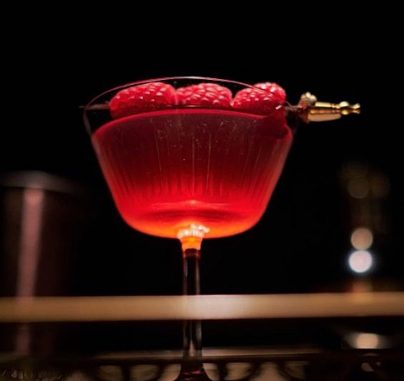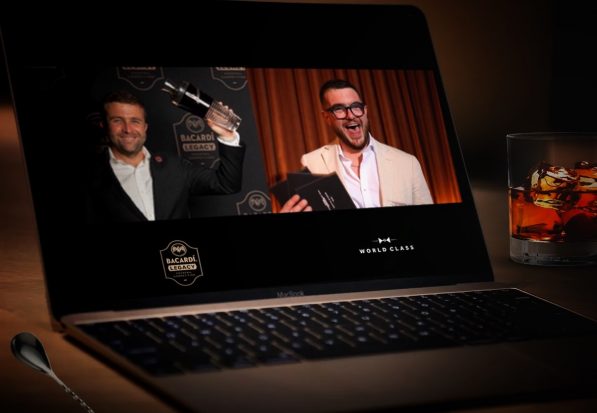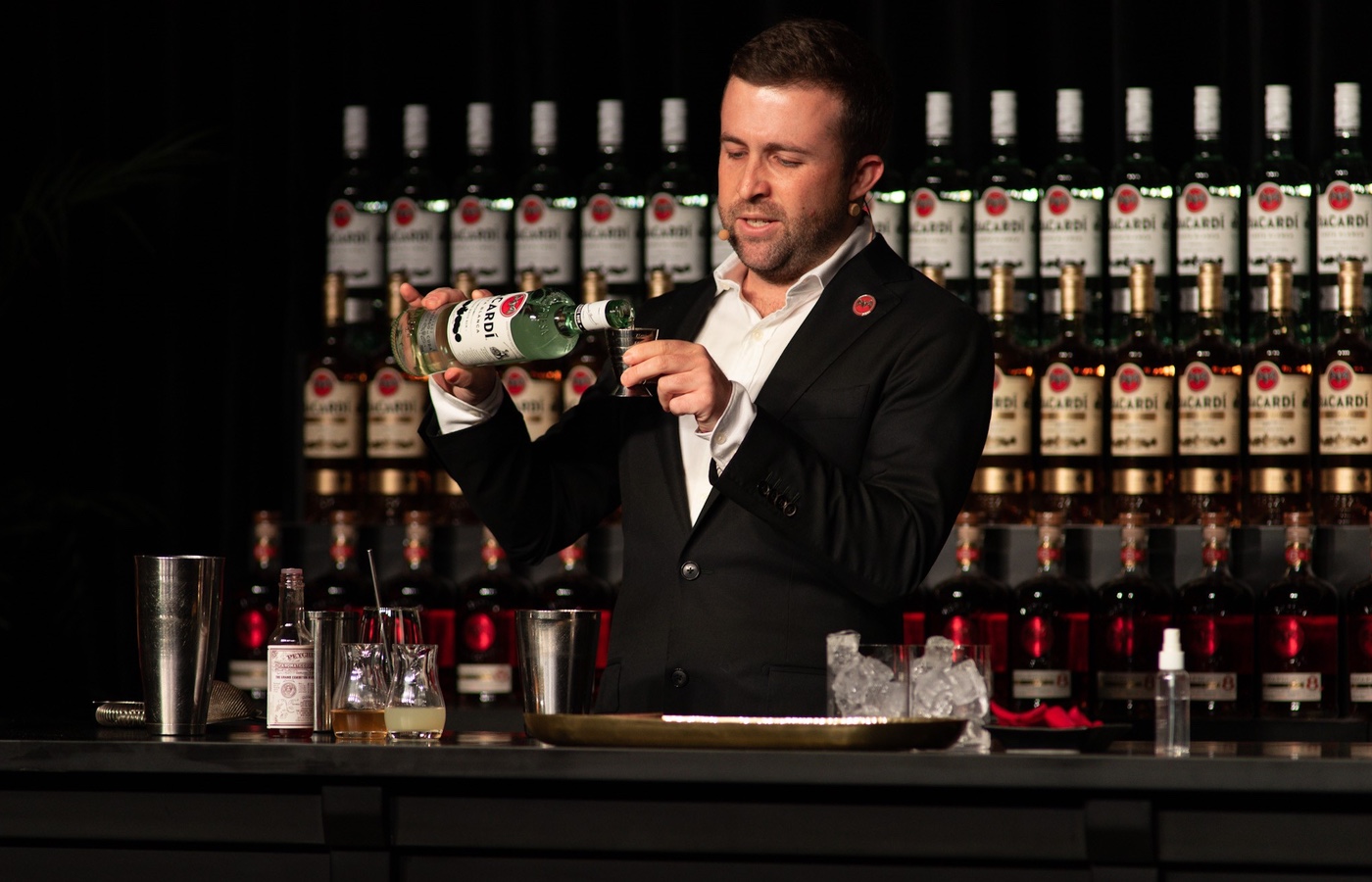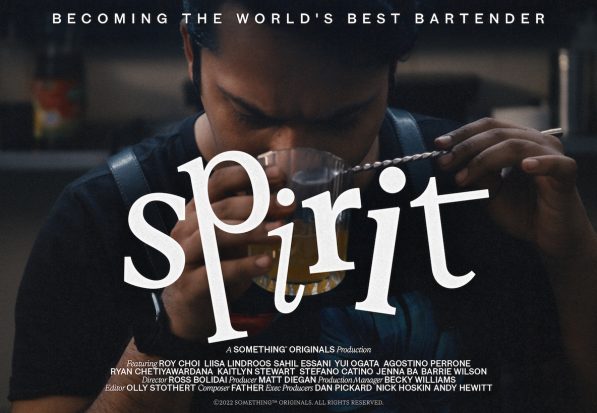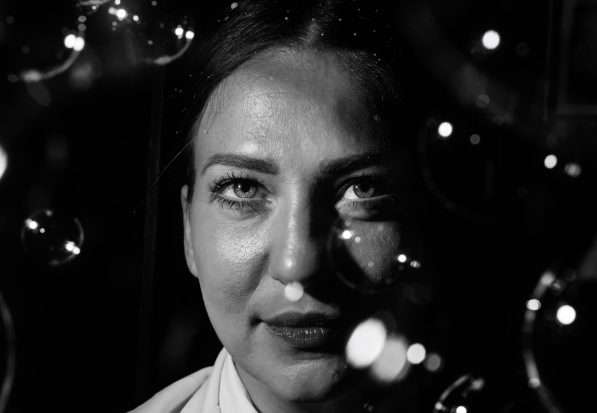At 1.30am tomorrow morning Sydney time, Australian bartender and top 8 finalist in the Bacardi Legacy Cocktail Competition, Adam Dow will probably wake up, turn on his computer so he can connect virtually with the competition, watch the submissions of his competitors and wait to find out whether his entry has won.
And then once it’s decided and the winner is announced, he’ll finish up his calls, turn off his phone and go back to bed for a couple of hours, so he can get up later in the morning and go to work.
There will be no crowds, there will be no adrenaline, he won’t even be making the drink he has created. Instead, he’ll be at home, watching it all unfold remotely, several time zones and halfway across the globe. Welcome to the new world of virtual cocktail competitions.
Normally at this time of year, the finalists for brand cocktail competitions would be jetting off to exotic locations to battle it out against their peers. But this year, things are very different.
Bartenders like Dow, and fellow Sydney bartender Evan Stroeve, who is through to the final of Diageo’s World Class which will be held next week, haven’t travelled anywhere near an airport. Instead, they have been freighting their drink ingredients to London, having online meetings with their stand-ins who will prepare their drinks for the competition in their absence, and finalising pre-recorded videos that are intended to explain their narrative and methodology to an audience of judges 10,000 miles away.
As anyone who has been in a zoom meeting in the last 18 months will tell you, working virtually is not necessarily better or worse, it just different; it requires a different mindset and it certainly involves a different set of skills.
While Dow believes that presenting your cocktail in well-executed videos certainly takes a lot of pressure off, Stroeve points out that he expects that the element of excitement will also a little lost. “I’ve presented in cocktail competitions and in World Class for the last three years, but this is a completely different beast,” said Stroeve
“Presenting in front of a room with hundreds of people is completely and utterly nerve-racking, so I think removing that element, you might see some more polished and cleaner presentations, but yeah, it certainly takes away a lot of the adrenaline.
“There’s probably less focus, per se, on the actual mechanics of drink making,” Stroeve continued. “Obviously you are still making drinks on screen, but there’s no kind of speed round where you’re judged on your cleanliness and efficiency and that kind of thing.”
Dow agrees, “When you take away that live element of the competition, there is a certain edge that is gone, so it becomes all about finding different ways to express yourself and new ways that you can resonate with the judges that will bring your personality across.”
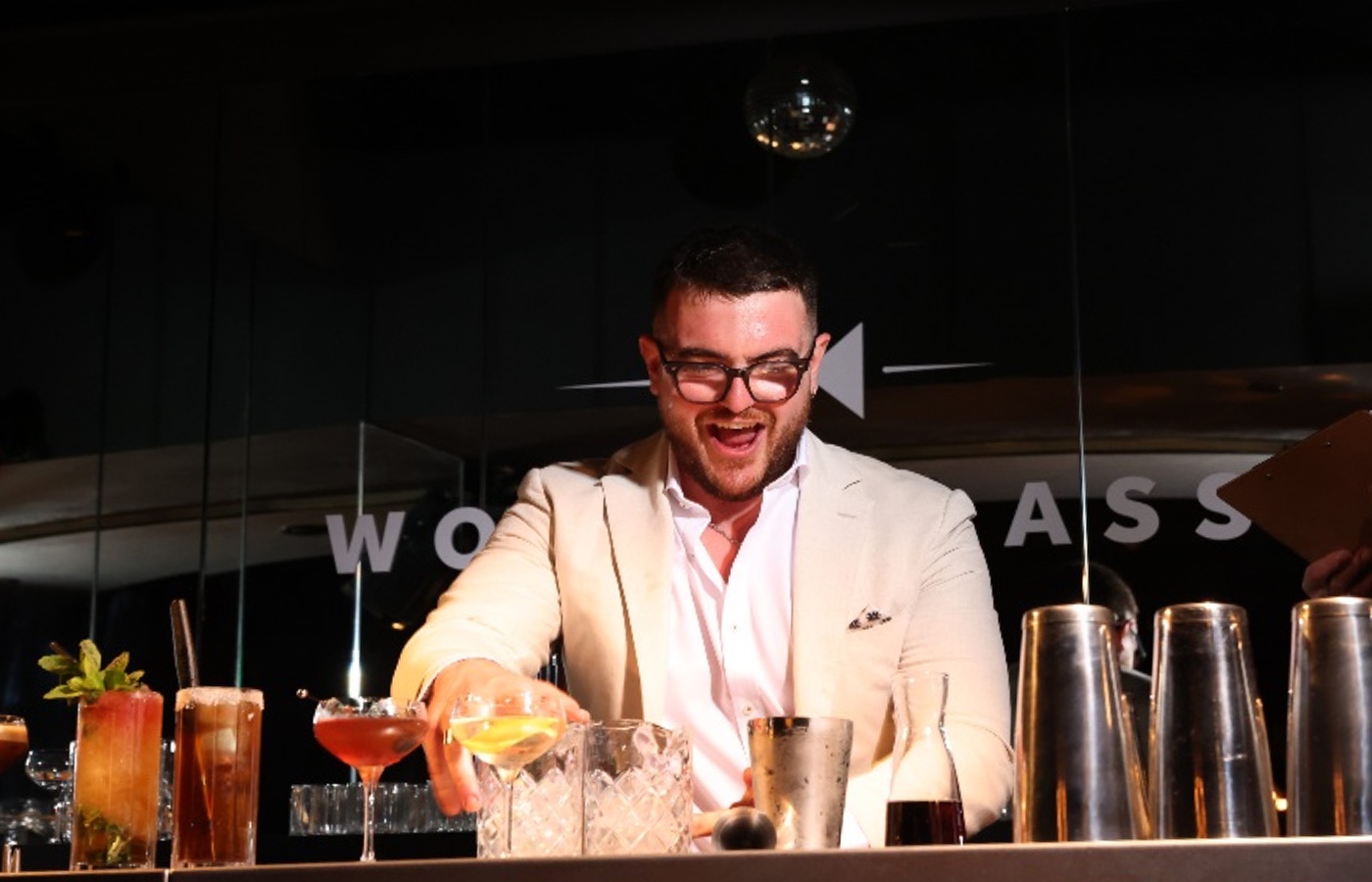 PIN IT
PIN ITEvan Stroeve
For Stroeve, who has six challenges to present, one for each of the core reserve brands that include Don Julio, Tanqueray and Ketel One, the videos are all about finding ways that genuineness and earnestness can translate well over the screen.
While he agrees acting skills certainly help, he believes that the key can be found in the story that you are trying to tell and the degree of authenticity and transparency that portrayed.
“When you are presenting virtually,” he said, “it’s all about storytelling. It’s about guiding the judges through a particular journey. So it comes down to trying to make as much of a genuine connection as you can in a six-minute video.”
While competing virtually has presented its challenges, both bartenders believe that it has also sharpened their skills. The most obvious skill would, of course, be in their presentation, but they believe that their ability to create campaigns and communicate recipes simply and openly has also been increased.
“We have a proclivity to be quite secretive when it comes to the recipes that we’ve formed over many, many months, but it doesn’t serve anyone,” said Stroeve. “If you’re transparent and you recognise the power that comes from being transparent and the knowledge that you have, then I think that’s the most important thing.”
For Dow whose journey revolves around one particular cocktail that should, as he describes it, be ‘the next classic rum cocktail’, the aim is to ensure that the drink can be replicated anywhere, by anyone.
“Every great drink has a story behind it. Legacy is about creating a drink that people can replicate at home but that not only shares aspects of your legacy and history but also that of the brand. So the link between you and Bacardi is through the drink and the story that it tells.”
While the drinks are important, both brands have highlighted the importance of the industry, with an understanding of the networking opportunities that have perhaps been lost. As well as setting up remote forums among the finalists, brands have also encouraged mentoring with past winners and industry heavyweights.
But beyond that, both Diageo and Bacardi have encouraged their finalist to think about what the industry needs in terms of moving forward. In lieu of travel budgets, both companies have come up with a fairly decent budget that have been presented to all the finalists. Aside from assisting with production costs, the brands have encouraged their finalist to think about how they can give back.
I’ve presented in cocktail competitions and in World Class for the last three years, but this is a completely different beast
In Stroeve’s case, he had to submit a concept for a bartender-led initiative that positively impacted the industry and the surrounding community. Called The Martini Syndicate, the concept, is based around the concept of communal carbon offsetting. To do this he has partnered with the Aboriginal Carbon Foundation, to not only offset the large footprint produced by the industry but also promote indigenous employment in rural communities.
“So the way that works is that participating bars put up a Ketel One cocktail special, and then that can be anything from just a really kind of classic Martini or a vodka soda all the way through to a really kind of complex, creative cocktail.
“The bars are then asked to contribute $1 from each sale to a Martini Syndicate fund,” Stroeve continued, “which has been matched by myself and by his bar Re. And then that fund in its entirety goes to the Aboriginal Carbon Foundation. We’re aiming to sell 5,000 drinks, which means $10,000, which is 850 tons of carbon.”
Dow alternatively wanted his contribution to help women in the hospitality industry. Called the Golden Rule (after his cocktail of the same name), the grant is designed to assist with professional development requirements.
“Training development is something I’m really passionate about,” Dow explained. “And I wanted to do something tangible, so the grant is designed to help women who feel that they are behind the eightball. Maybe they haven’t been able to complete a WSET level, maybe they need some photography equipment to help boost their social presence, or maybe they want to complete a course to further their leadership skills.”
While it could be easy to dismiss virtual cocktail competitions as a way for the brands to simply making the best of a bad situation, Dow suspects that video presentations could possibly be here to stay. “When it comes to nationals, I could easily see video presentations being used in future to work out who the finalists are, rather than flying numerous competitors to the host city. For the sake of efficiency and cost-saving, I could see it being a benefit.”
How much of the lessons of this year stay will stay with the competitions, only time will tell, but for the finalists this year, stay at home orders are the watchword.
As Stroeve said “Yeah, it would be nice to travel for sure. But that being said, Diageo is throwing everything at the finals run to ensure that it’s successful. I think the level of support that I’m getting this year would perhaps be a little bit different from the support that others would have gotten in the past and that’s because obviously there’s no travel budget. So there’s pros and cons, but travel will be there eventually, and I’m sure I’ll get to enjoy it when it is.”
